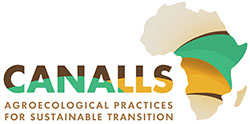Our ALLs
ALL Bunia in DRC (Lowlands/ cocoa)
Transition phase: Low forest degradation
Agroecological approaches to be tested
- Agroforestry systems
- Intercropping with diverse shade trees
- Integrated soil fertility management (ISFM)
- Integrated pest management (IPM)
- Organic value chain
Expected outcomes
- Agroforestry systems
- Intercropping with diverse shade trees
- Integrated soil fertility management (ISFM)
- Integrated pest management (IPM)
- Organic value chain

ALL Biega in DRC (Highlands/ coffee)
Transition phase: Low forest degradation
Agroecological approaches to be tested
- Agroforestry systems
- Intercropping (banana)
- Nutrient recycling through local composts
- Integrated pest management (IPM)
- Organic value chain
Expected outcomes
- Increased high-quality coffee production
- Improved soil health and biodiversity
- Increased climate change resilience
- Less GHG emissions
- Forest conservation
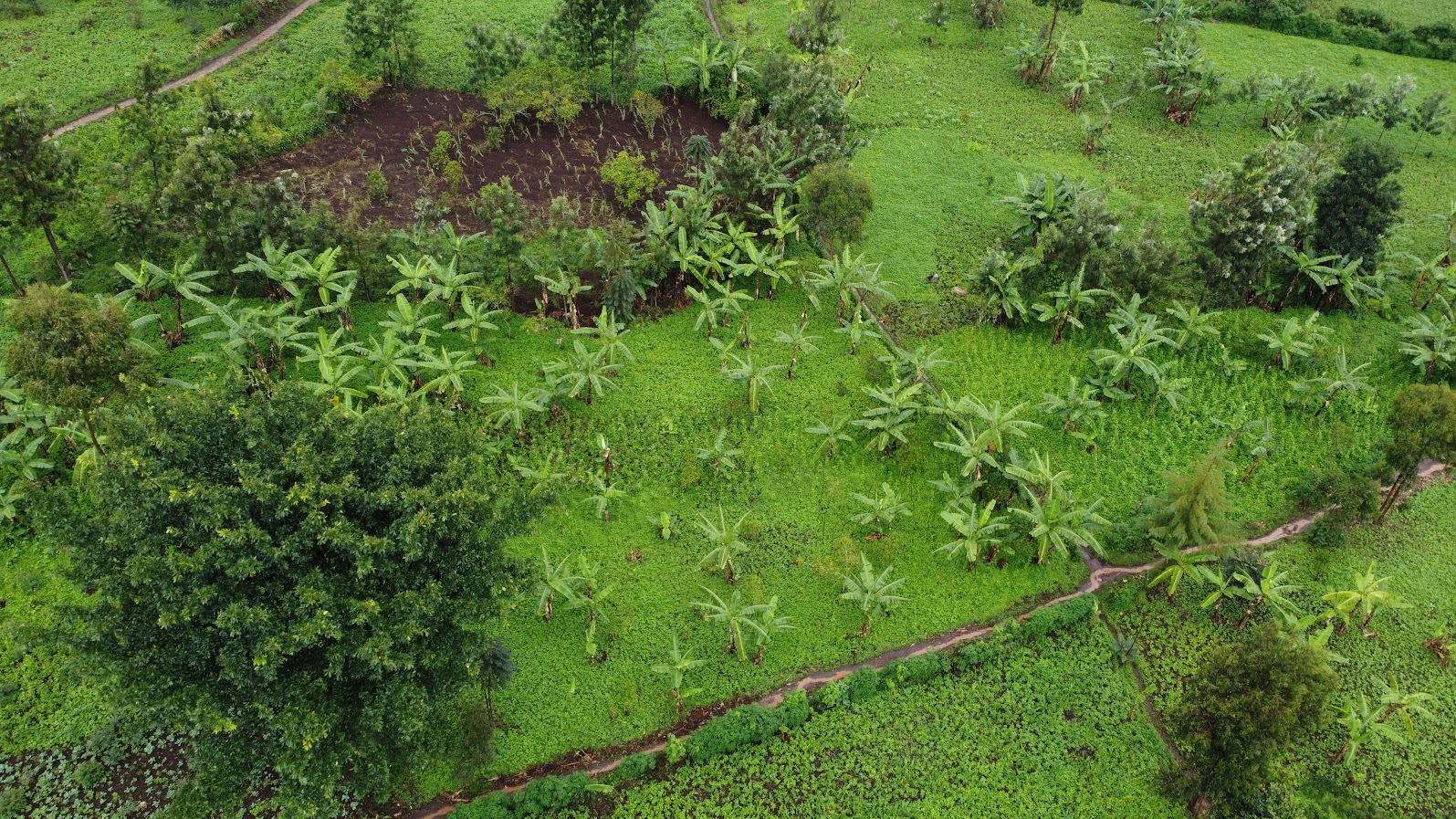
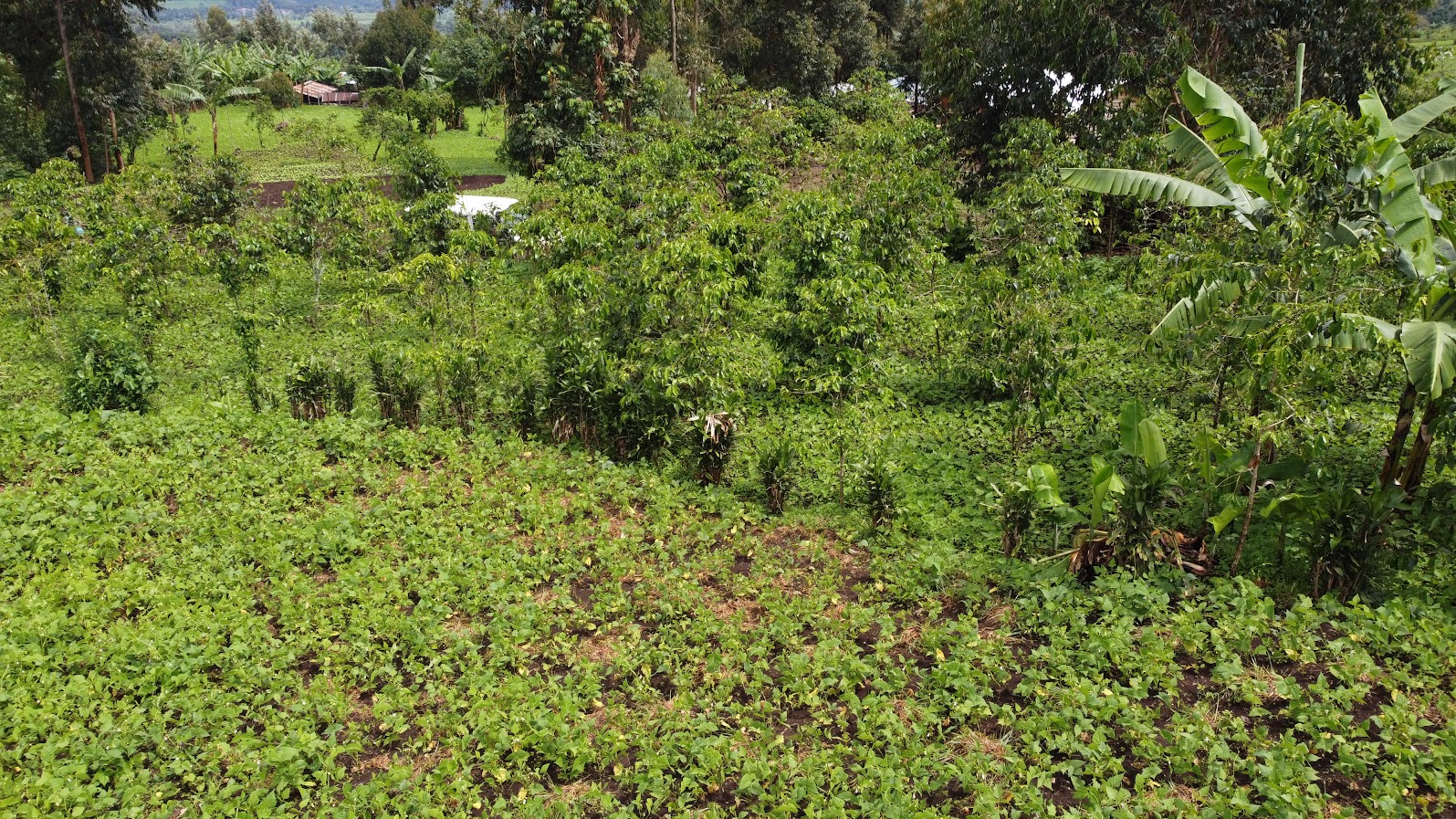

ALL Kabare in DRC (Highlands/ coffee)
Transition phase: Transect of deforestation
Agroecological approaches to be tested
- Integrated soil fertility management (ISFM)
- Recycling of nutrients combining coffee pulp, and organic waste compost
Expected outcomes
- Improved control of nutrient flows and recycling of nutrients
- Higher business capacity of coffee cooperatives
- New organic coffee value chain
- Better access to local and international markets
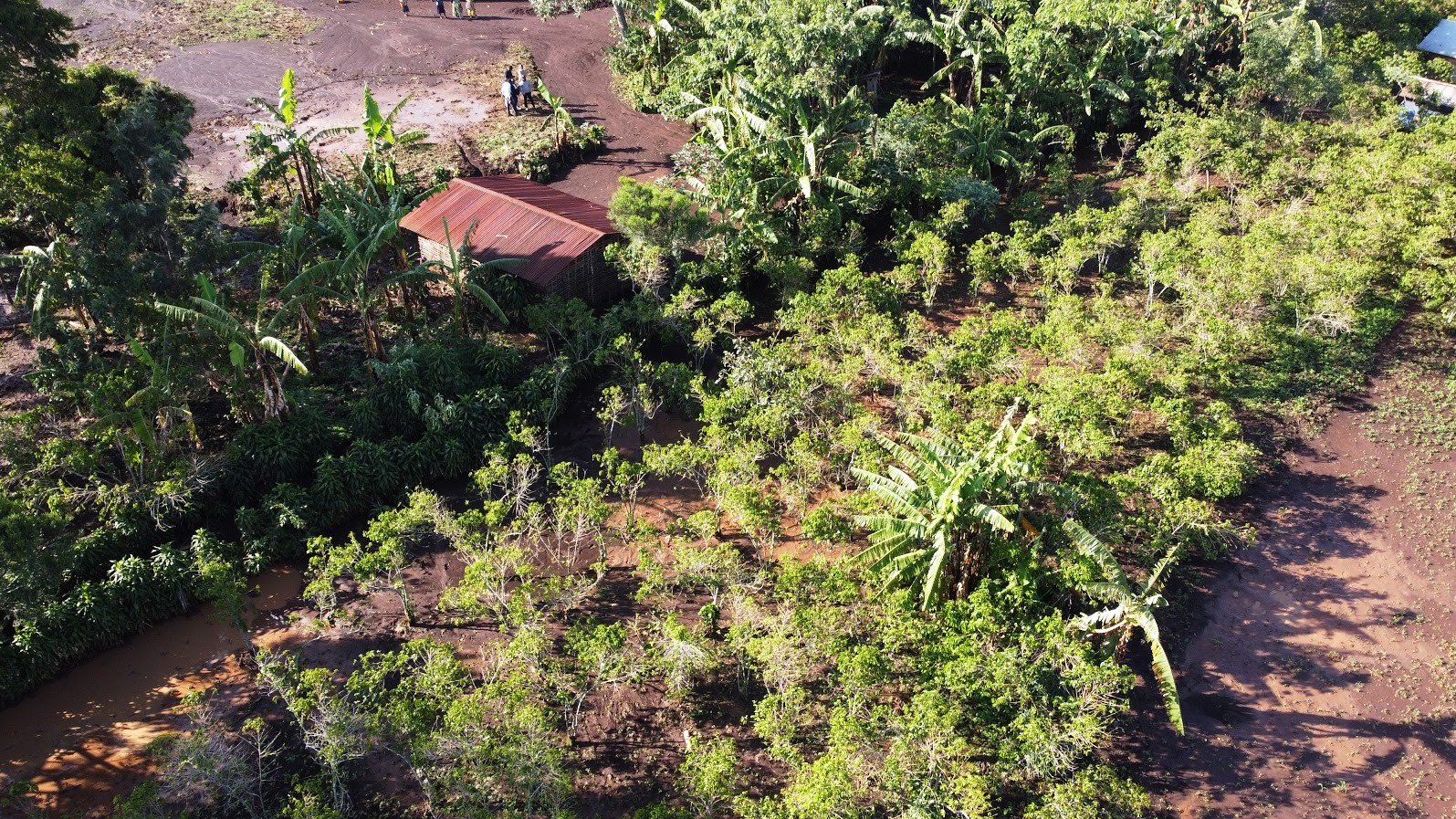
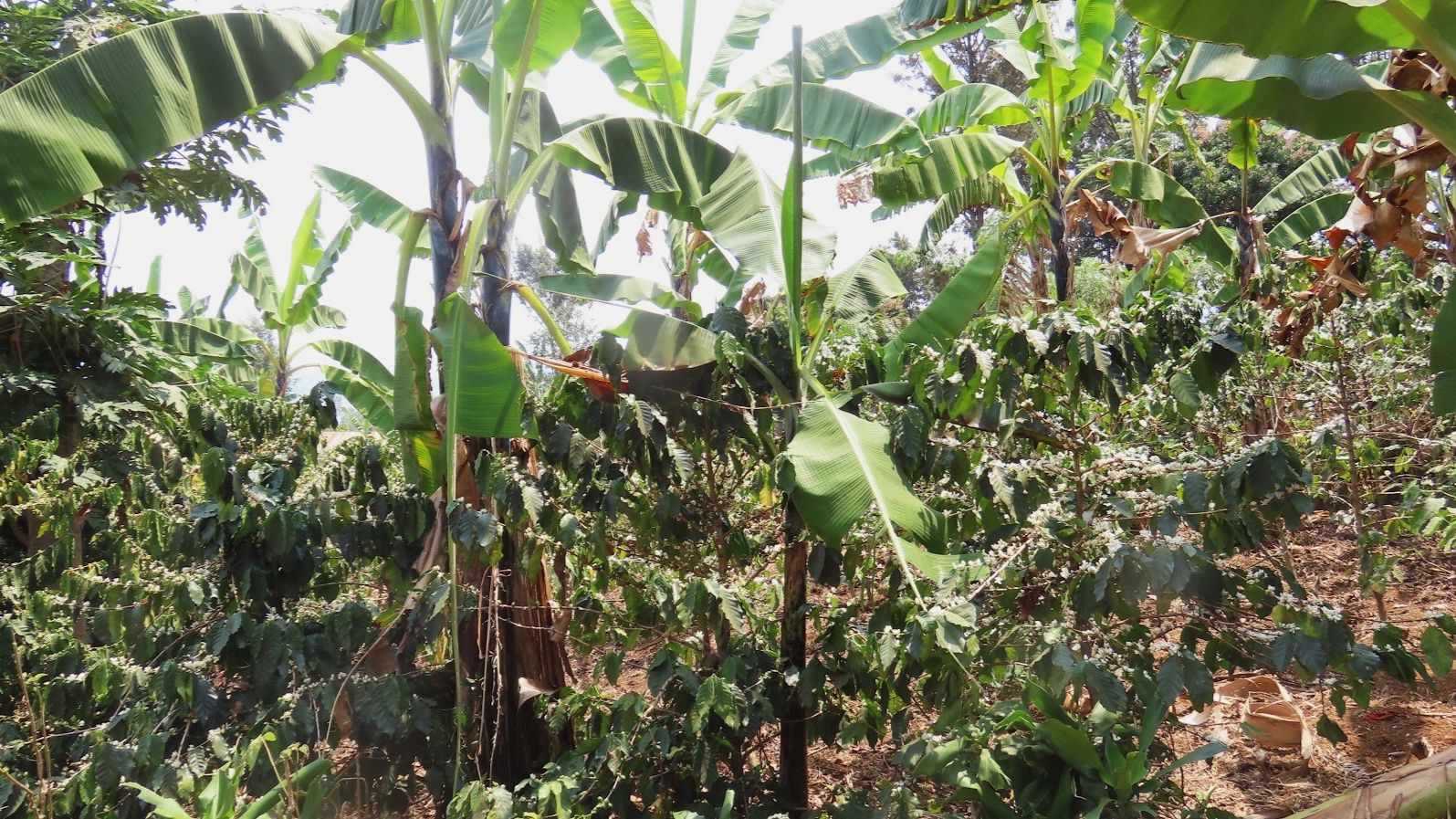

ALL Uvira in DRC (Lowlands/ cassava, rice)
Transition phase: Deforested
Agroecological approaches to be tested
- Integration of crop and livestock systems
- Forage production
- Integrated soil fertility management (ISFM) with recycling of nutrients via manure
- Intercropping (legumes)
- Legume cover crops
Expected outcomes
- Lower nutrients loss
- Improved soil health
- Better control of pest diseases in cassava
- Increased climate change resilience
- Sustainable rice production
- Alternative value chains on rice and cassava products
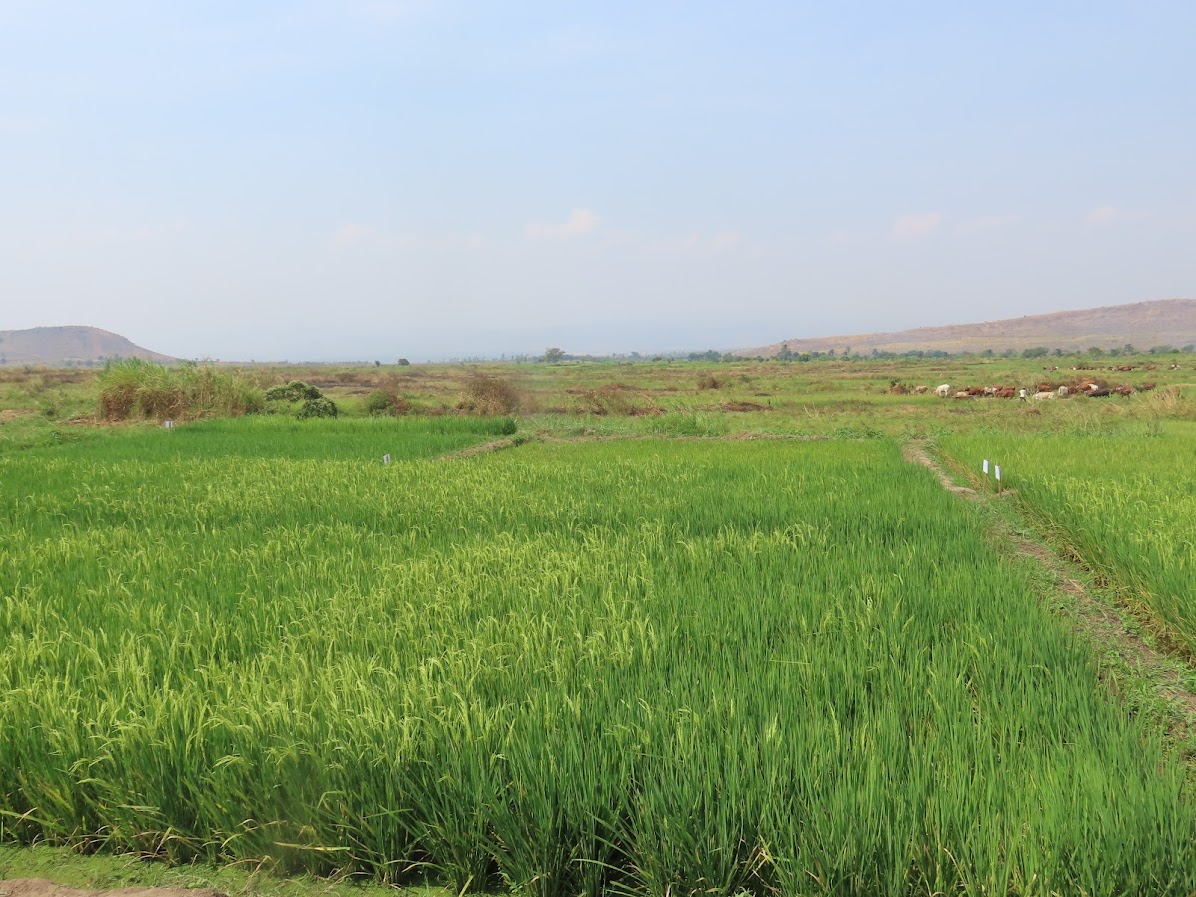
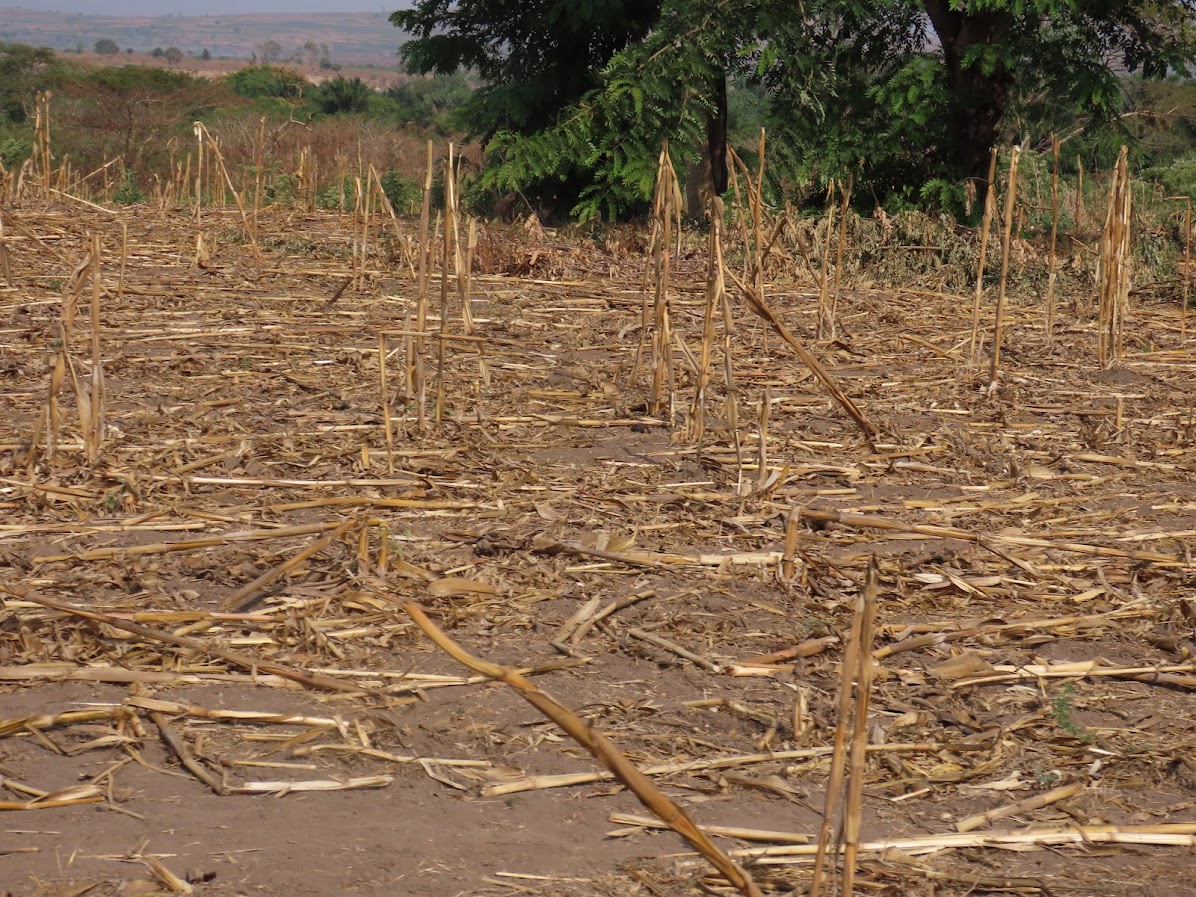
ALL Ntui in CR (Lowlands/ cocoa)
Transition phase: Moderate to severe forest degradation
Agroecological approaches to be tested
- Traditional agroforestry systems
- Integrated soil fertility management (ISFM)
- Integrated pest management (IPM)
Expected outcomes
- Increased cocoa productivity
- Improved soil health
- Forest conservation
- Increased biodiversity
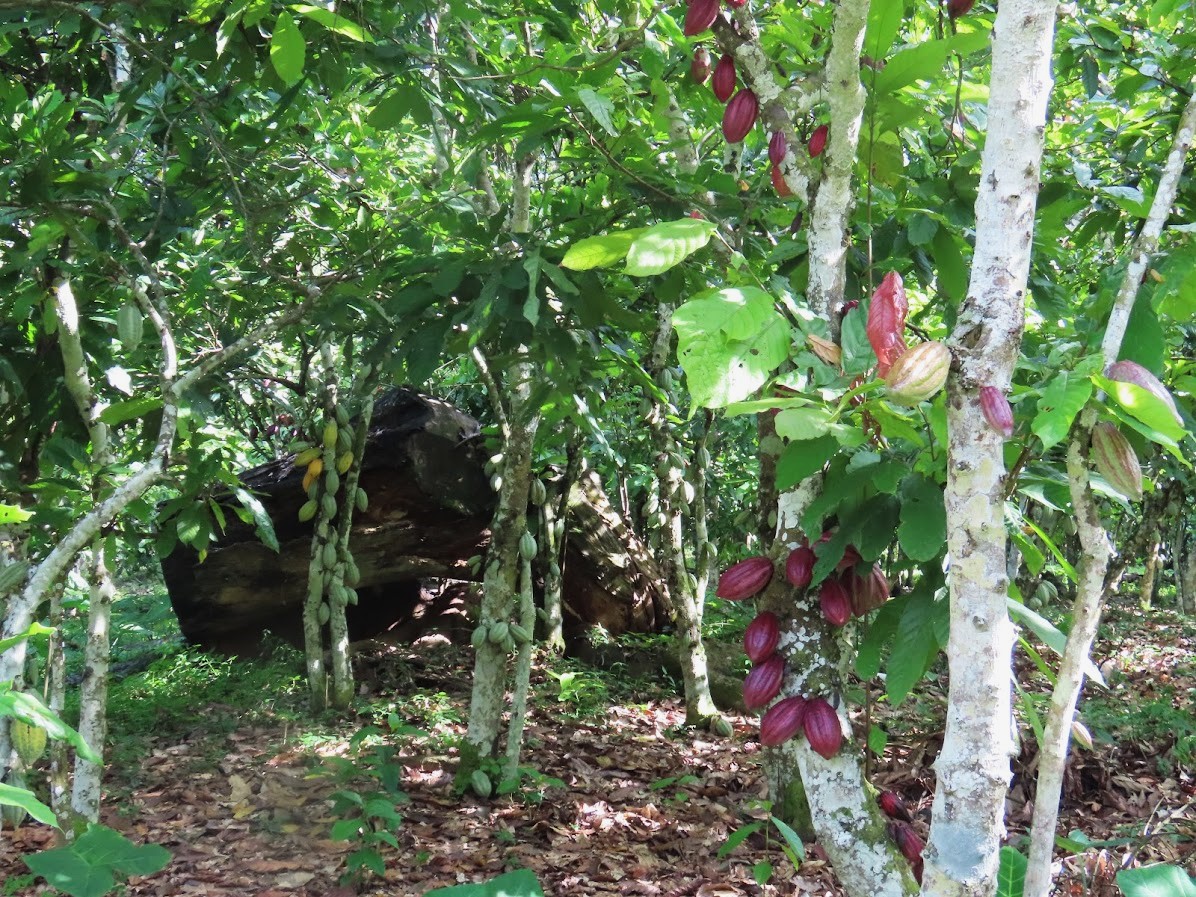
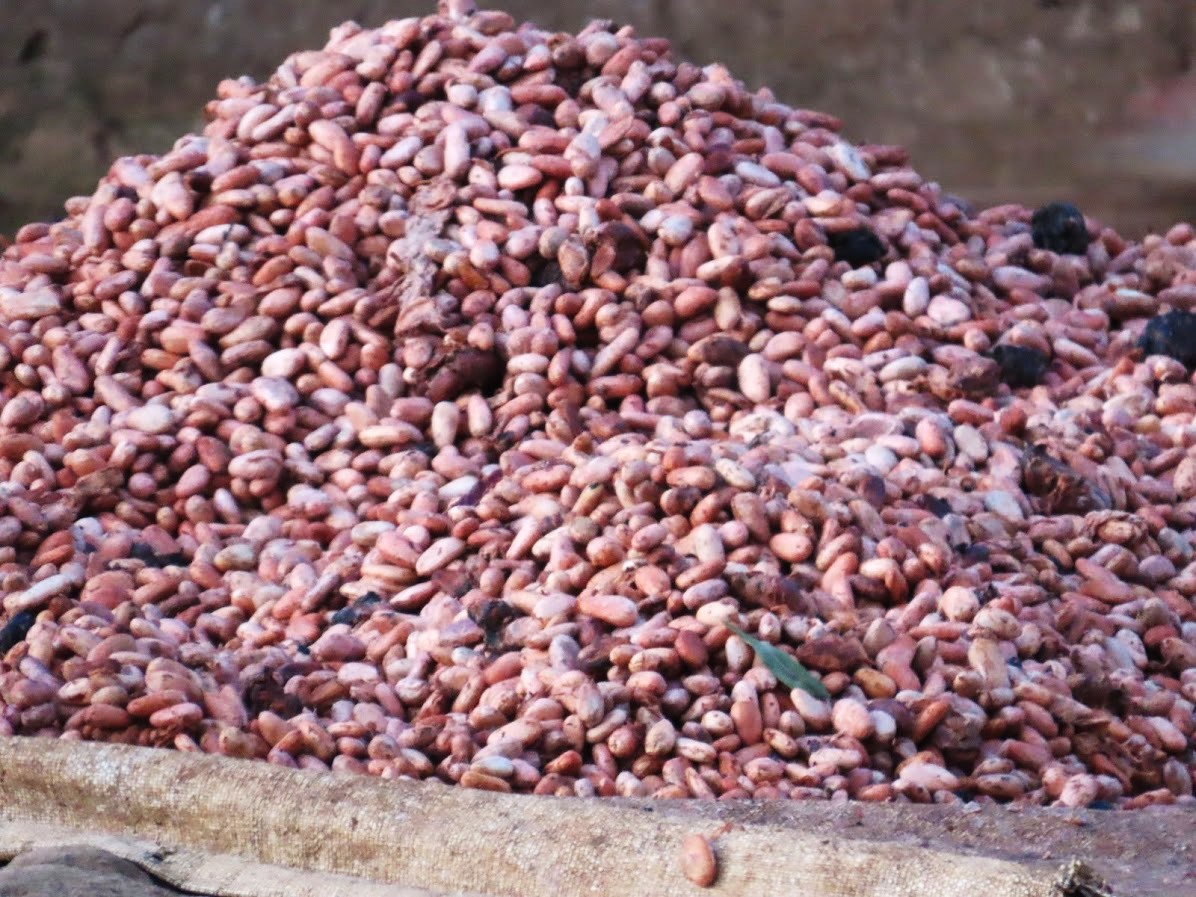
ALL Giheta in BR (Highlands/ coffee)
Transition phase: Agro-reforestation
Agroecological approaches to be tested
- Agroforestry systems
- Intercropping (e.g. banana or timber trees)
- Nutrients recycling from organic sources
- Organic pest control
- Organic value chain
Expected outcomes
- Increased high- quality coffee productivity
- New organic coffee value chain
- Better access to international markets through certification scheme
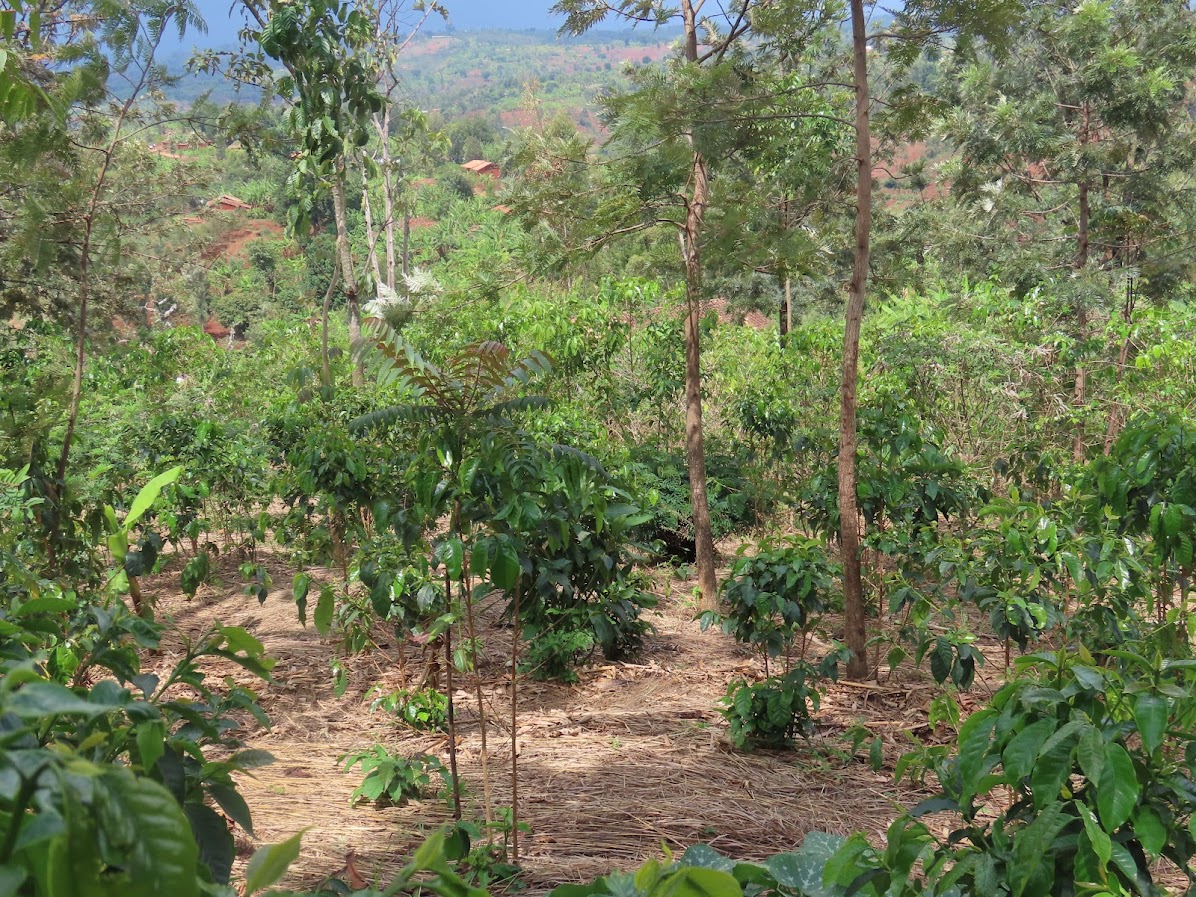
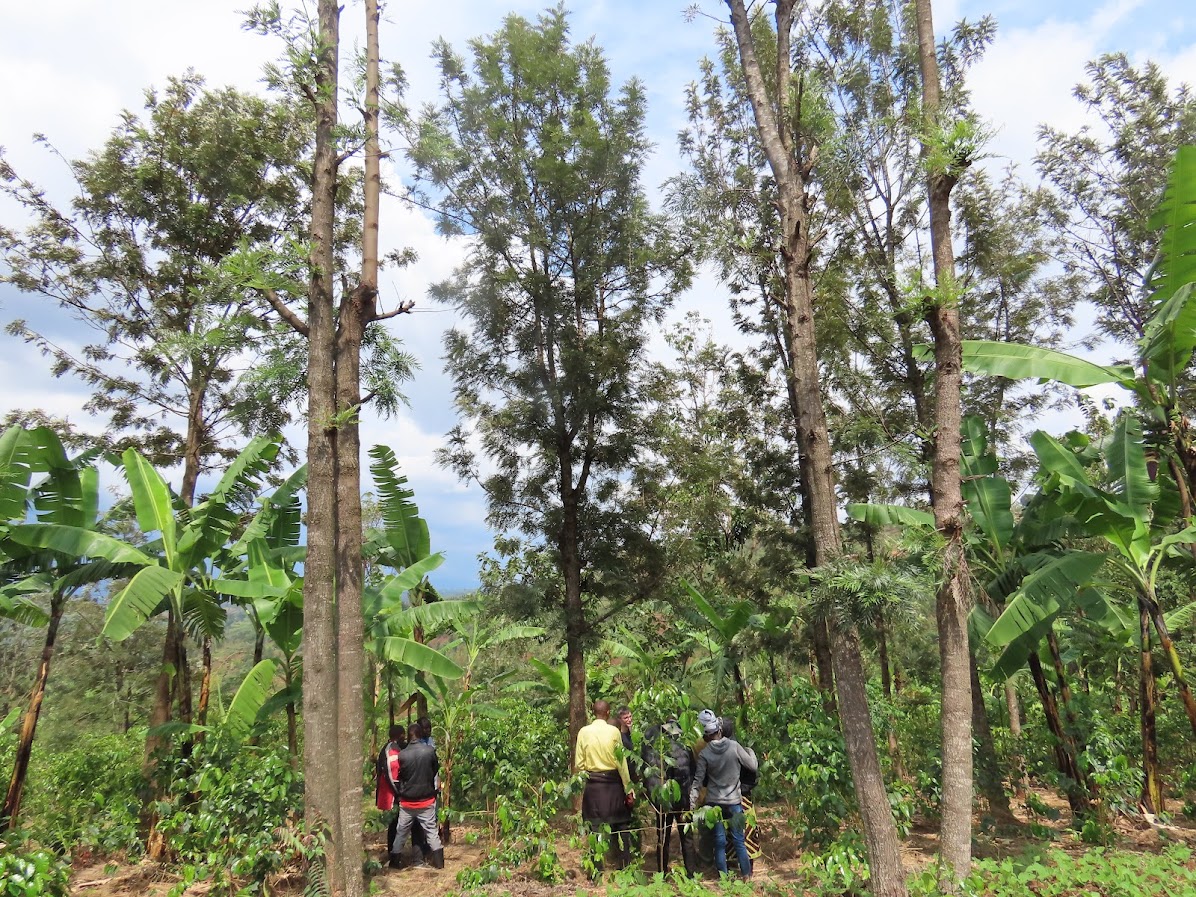

ALL Bujumbura in BR (Lowlands/ maize)
Transition phase: Deforested
Agroecological approaches to be tested
- Integrated soil fertility management (ISFM)
- Integrated pest management (IPM)
- Intercropping (Brachiaria, soybean)
- Forage production
- Integration crop-livestock systems
Expected outcomes
- Increased, more stable maize productivity
- Improved soil health and biodiversity
- Increased climate change resilience
- Improved farm diversification through crop-livestock interactions
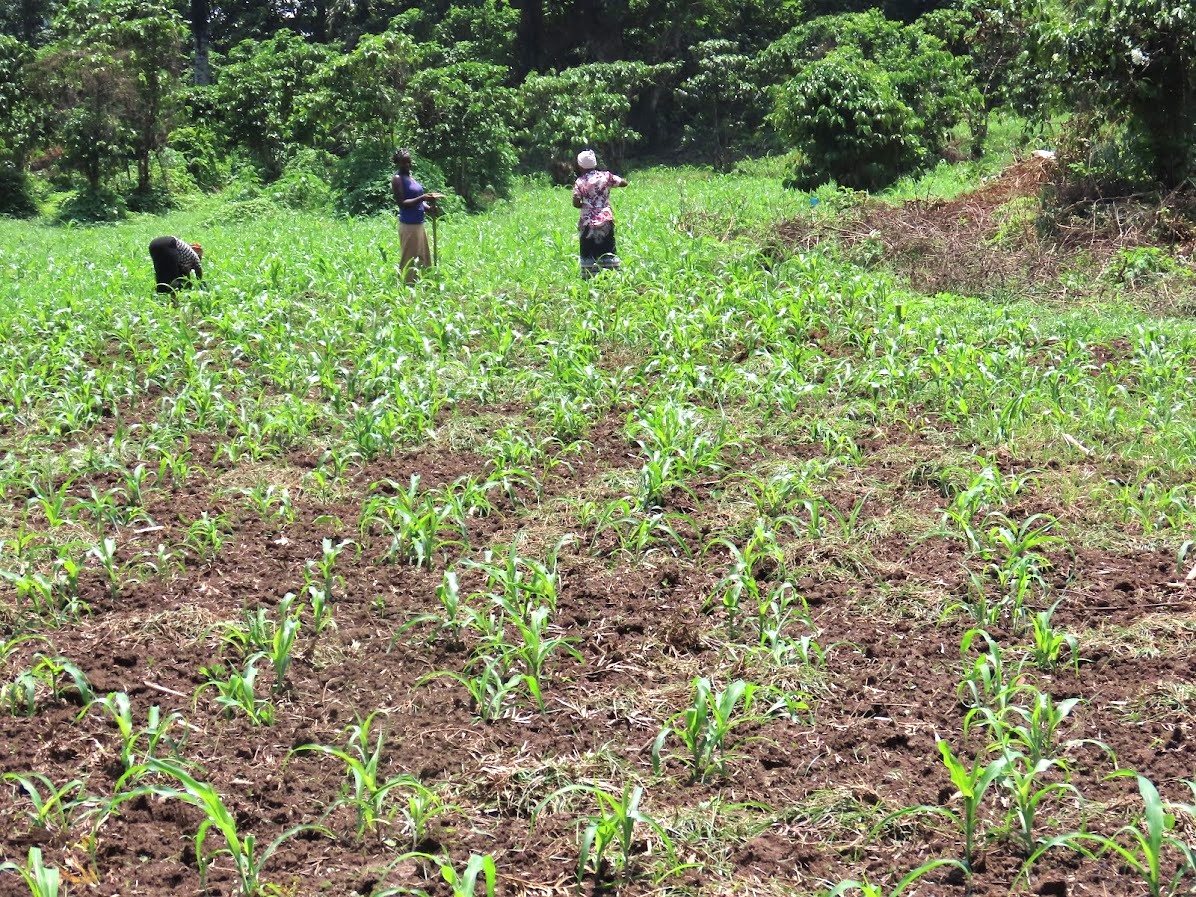
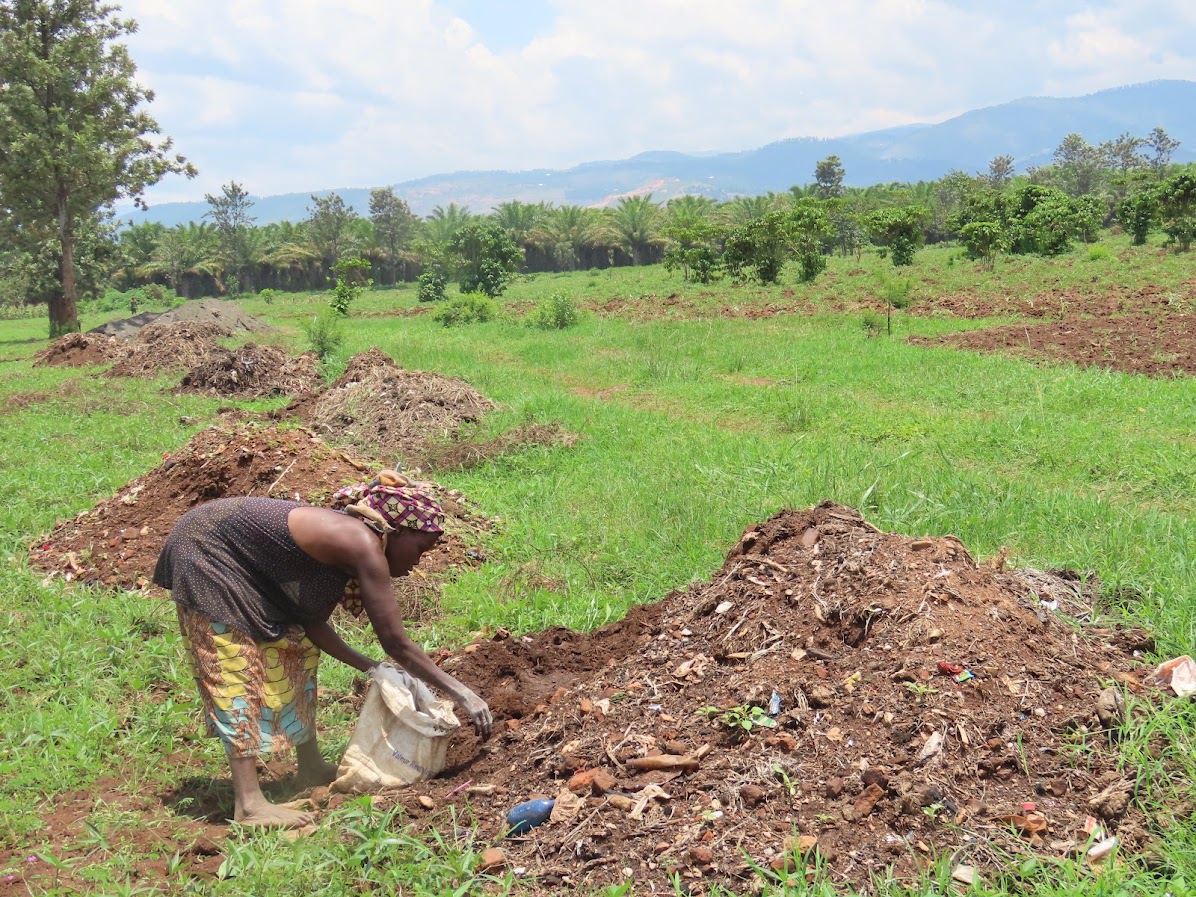
ALL Kamonyi In RW (Highlands/ cassava)
Transition phase: Deforested
Agroecological approaches to be tested
- Intercropping (legume)
- Integrated soil fertility management (ISFM)
- Nutrient recycling (organic waste compost)
- Farm diversification
Expected outcomes
- Increased cassava productivity
- Improved soil health and biodiversity
- Improved control of nutrient flows and recycling of nutrients
- Increased farm diversification through crop-livestock interactions
- Increased climate change resilience
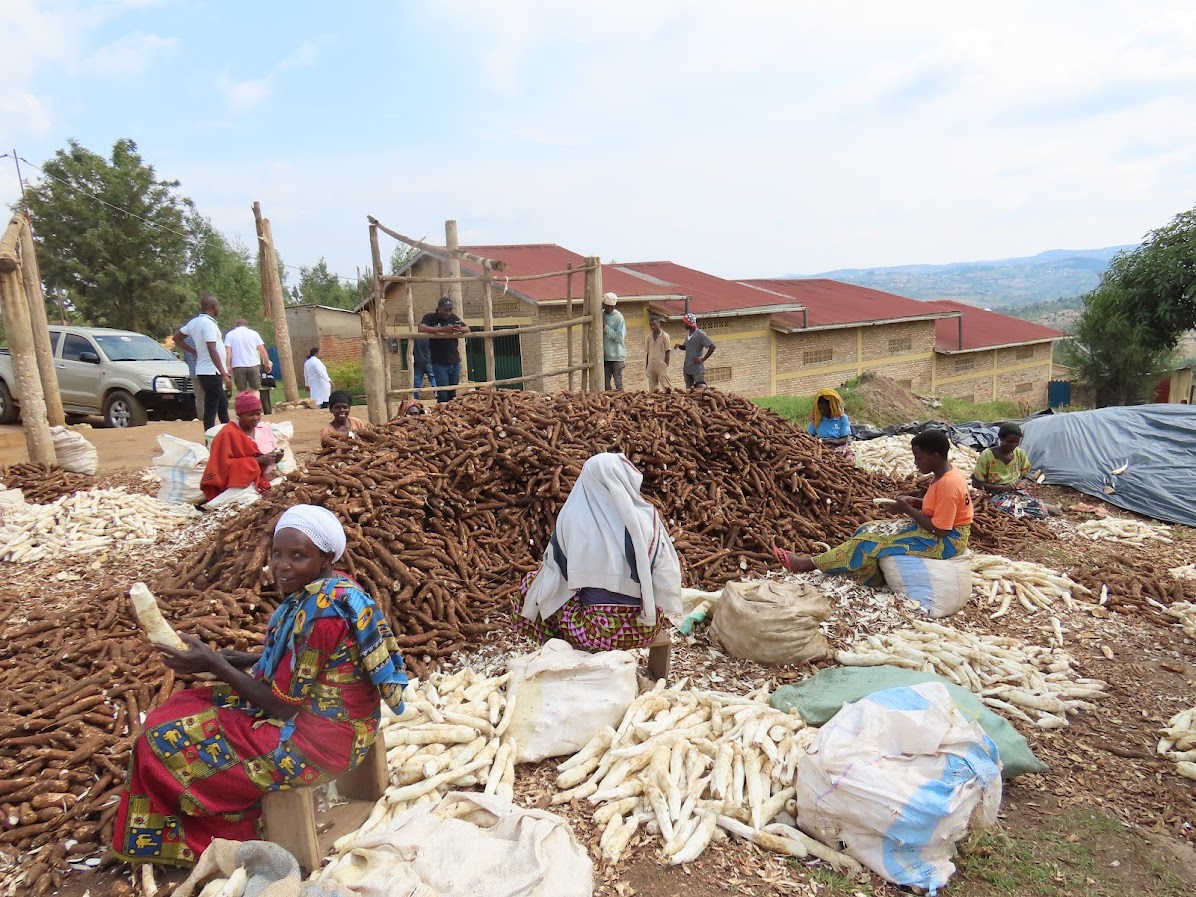
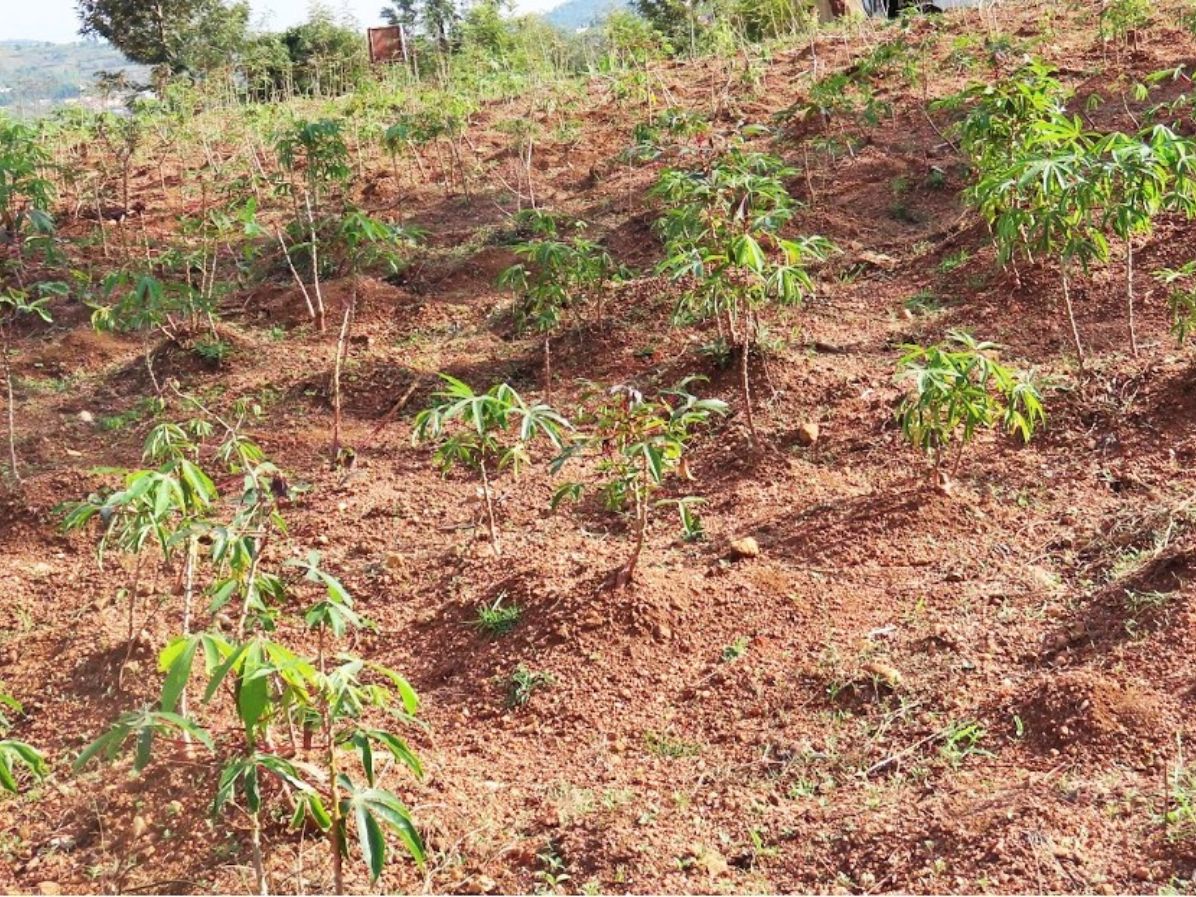
ALL Bunia in DRC (Lowlands/ cocoa)
Transition phase: Low forest degradation
Agroecological approaches to be tested
- Agroforestry systems
- Intercropping with diverse shade trees
- Integrated soil fertility management (ISFM)
- Integrated pest management (IPM)
- Organic value chain
Expected outcomes
- Agroforestry systems
- Intercropping with diverse shade trees
- Integrated soil fertility management (ISFM)
- Integrated pest management (IPM)
- Organic value chain

ALL Biega in DRC (Highlands/ coffee)
Transition phase: Low forest degradation
Agroecological approaches to be tested
- Agroforestry systems
- Intercropping (banana)
- Nutrient recycling through local composts
- Integrated pest management (IPM)
- Organic value chain
Expected outcomes
- Increased high-quality coffee production
- Improved soil health and biodiversity
- Increased climate change resilience
- Less GHG emissions
- Forest conservation



ALL Kabare in DRC (Highlands/ coffee)
Transition phase: Transect of deforestation
Agroecological approaches to be tested
- Integrated soil fertility management (ISFM)
- Recycling of nutrients combining coffee pulp, and organic waste compost
Expected outcomes
- Improved control of nutrient flows and recycling of nutrients
- Higher business capacity of coffee cooperatives
- New organic coffee value chain
- Better access to local and international markets



ALL Uvira in DRC (Lowlands/ cassava, rice)
Transition phase: Deforested
Agroecological approaches to be tested
- Integration of crop and livestock systems
- Forage production
- Integrated soil fertility management (ISFM) with recycling of nutrients via manure
- Intercropping (legumes)
- Legume cover crops
Expected outcomes
- Lower nutrients loss
- Improved soil health
- Better control of pest diseases in cassava
- Increased climate change resilience
- Sustainable rice production
- Alternative value chains on rice and cassava products


ALL Ntui in CR (Lowlands/ cocoa)
Transition phase: Moderate to severe forest degradation
Agroecological approaches to be tested
- Traditional agroforestry systems
- Integrated soil fertility management (ISFM)
- Integrated pest management (IPM)
Expected outcomes
- Increased cocoa productivity
- Improved soil health
- Forest conservation
- Increased biodiversity


ALL Giheta in BR (Highlands/ coffee)
Transition phase: Agro-reforestation
Agroecological approaches to be tested
- Agroforestry systems
- Intercropping (e.g. banana or timber trees)
- Nutrients recycling from organic sources
- Organic pest control
- Organic value chain
Expected outcomes
- Increased high- quality coffee productivity
- New organic coffee value chain
- Better access to international markets through certification scheme



ALL Bujumbura in BR (Lowlands/ maize)
Transition phase: Deforested
Agroecological approaches to be tested
- Integrated soil fertility management (ISFM)
- Integrated pest management (IPM)
- Intercropping (Brachiaria, soybean)
- Forage production
- Integration crop-livestock systems
Expected outcomes
- Increased, more stable maize productivity
- Improved soil health and biodiversity
- Increased climate change resilience
- Improved farm diversification through crop-livestock interactions


ALL Kamonyi In RW (Highlands/ cassava)
Transition phase: Deforested
Agroecological approaches to be tested
- Intercropping (legume)
- Integrated soil fertility management (ISFM)
- Nutrient recycling (organic waste compost)
- Farm diversification
Expected outcomes
- Increased cassava productivity
- Improved soil health and biodiversity
- Improved control of nutrient flows and recycling of nutrients
- Increased farm diversification through crop-livestock interactions
- Increased climate change resilience


